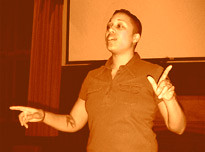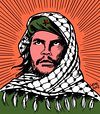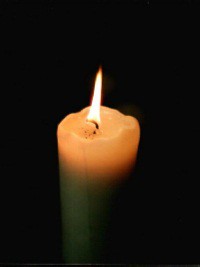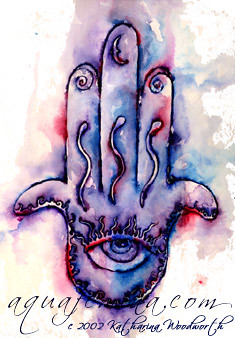"Some troops came back from an expedition and went to see the Messenger of Allah (saaws). He said: "You have come for the best, from the smaller jihad (al-jihad al-asghar) to the greater jihad (al-jihad al-akbar)." Someone said, "What is the greater jihad?" He said: "The servant's struggle against his lust" (mujahadat al-`abdi hawah).
For a long time now I've had an idea for a book. And I still might try to complete this project at a future date but I also think it is a good enough idea that on some level (especially in the current political climate) I would be happy if someone else "stole" the idea and did it first as long as it was executed well. My idea is to put together a Muslim version of the Art of War. Another work in the same ballpark would be the Hagakure which describes the code and values of the Samurai and which was prominently featured in the film Ghost Dog (A great film staring Forest Whitaker as a modern-day black Samurai/hitman in New Jersey)
What do I mean by a "Muslim Art of War"? I mean a compilation of Muslim reflection on struggle and warfare, starting with certain relevant passages of the Quran and examples from hadith, but also including the sayings of the companions and those who followed them, and possibly even writings from awliya who have participated in jihad through the centuries. Basically a spiritually-tinged Muslim guide to struggle, both physical and metaphysical.
I am bringing this idea up publically now because I recently found an anti-Islam site (which I won't do the honor of naming) where the author tried to discredit the above hadith and argue that co-existence with Muslims is impossible and that Islam were hell-bent on taking over the world. While it is true that there is a certain weakness in the isnad of the above hadith, one can still find ample support for its meaning in other more authentic texts. [1] [2]
Many of the ayat and hadith which would go into the kind of project I'm talking about should be unsurprising to many Muslims... for example:
A man asked: "What kind of jihad is better?"
The Prophet (saaws) replied: "A word of truth spoken in front of an oppressive ruler."
or
The Prophet (saaws) said: "The strong one is not the one who overcomes people, the strong one is he who overcomes his nafs [ego]."
But what might also be beneficial would be to look at some of the later texts which even Muslims might be less familiar with. For example, I'm Sunni but I still own a copy of Nahjul Balagha (or the Peak of Eloquence, a Shia collection of letters, sermons and sayings attributed to Imam Ali). I tend to suspend judgement about it's authenticity, but I'm not opposed to the idea that most of the text might actually trace back to Ali. In any case, if you look through it, you could find such gems as:
During civil disturbance adopt such an attitude that people do not attach any importance to you - they neither burden you with complicated affairs, nor try to derive any advantage out of you....If you overpower your enemy, then pardon him by way of thankfulness to Allah, for being able to subdue him....Silence will create respect and dignity; justice and fairplay will bring more friends; benevolence and charity will enhance prestige and position; courtesy will draw benevolence; service of mankind will secure leadership and good words will overcome powerful enemies.
In fact, many of the contents of Nahjul Balagha are presented as words from Ali either before or after a particular military/political action. In any case, I'm going to stop now and (inshaAllah) bring out more of this topic across a couple of posts.
Also check out S.H. Nasr: The Spiritual Significance of Jihad





